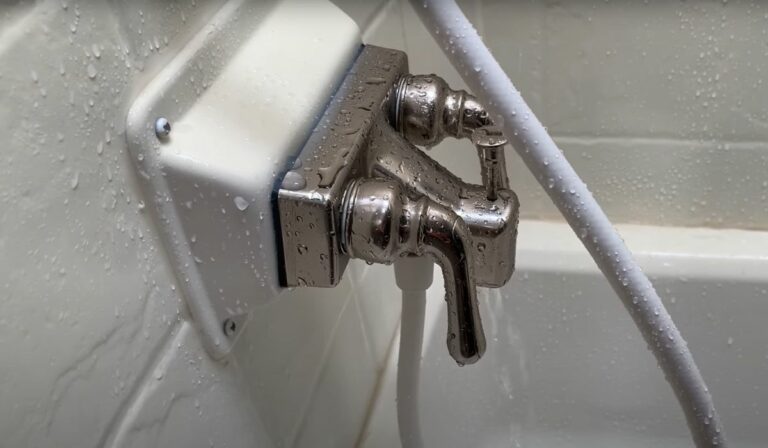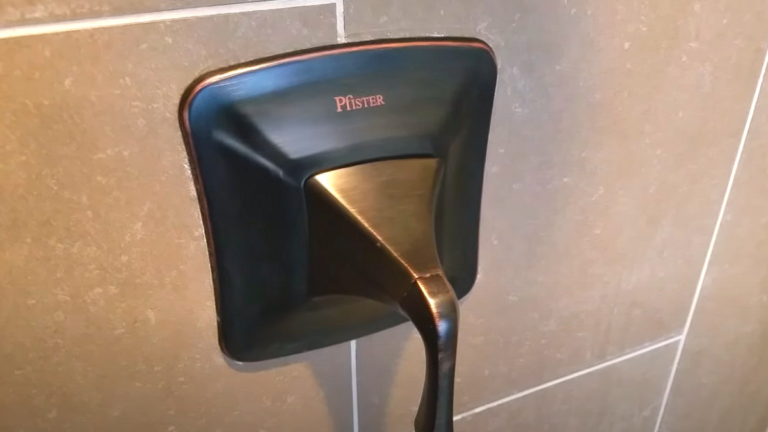What Is the Best Shower Filter
You want a shower filter that removes chlorine, heavy metals, and hard water minerals to protect your skin and hair from dryness and irritation. Look for filters with activated carbon and KDF media for effective contaminant removal, easy installation, and long-lasting cartridges that won’t reduce water pressure. Durable materials prevent leaks and rust. Choosing the right filter improves your shower experience and skin health. Keep exploring to discover top options and maintenance tips.
Understanding the Importance of Shower Filters
Although you mightn’t notice it, the quality of your shower water directly affects your skin and hair health. When you step into the shower, water interacts closely with your body, influencing moisture levels and cleanliness.
Without a proper filter, minerals and impurities can strip your skin and hair of natural oils, leaving them dry and irritated. Installing a shower filter helps you control what touches your body, promoting softer skin and shinier hair.
It also reduces the chance of allergic reactions or discomfort from harsh water conditions. By choosing the right filter, you improve your daily hygiene experience and protect your skin’s natural balance.
Taking this simple step can make a noticeable difference in how your skin and hair feel after every shower.
Common Contaminants Found in Tap Water
Knowing how shower water affects your skin and hair makes it important to understand what’s actually in that water. Tap water often contains contaminants like chlorine, which dries out your skin and hair, leaving them brittle.
Hard water minerals such as calcium and magnesium can cause buildup, making your skin feel rough and your hair look dull. You might also find traces of heavy metals like lead or mercury, which aren’t safe for prolonged exposure.
Bacteria and other microorganisms can sometimes be present, especially if the water source isn’t well-maintained. Even pesticides and volatile organic compounds (VOCs) can sneak in from environmental pollution.
Recognizing these common contaminants helps you see why filtering your shower water is a smart move for healthier skin and hair.
How Shower Filters Work
When you install a shower filter, it works by trapping and reducing harmful substances before they reach your skin and hair. The filter contains specialized media that capture contaminants like chlorine, heavy metals, and sediment.
As water passes through, these media either absorb or chemically alter the impurities, preventing them from causing dryness, irritation, or damage. Some filters also balance water pH to protect your skin’s natural oils.
You don’t need to worry about complicated setups; most filters simply attach to your existing showerhead or pipe. Regular replacement of the filter cartridge ensures it continues to perform effectively.
Types of Shower Filters Available
Understanding how shower filters work helps you choose the right one for your needs. You’ll find several types of shower filters, each targeting different contaminants.
The most common type uses activated carbon, which effectively reduces chlorine and odors. If you’re worried about heavy metals, a filter with KDF (Kinetic Degradation Fluxion) media can help by neutralizing these harmful elements.
Some filters combine multiple technologies, like carbon and vitamin C, for broader protection and skin benefits. You might also come across ceramic filters, which remove sediments and bacteria.
Lastly, there are magnetic filters designed to alter water properties, though their effectiveness is debated.
Knowing these options ensures you pick a filter that matches your water quality and personal preferences.
Key Features to Look for in a Shower Filter
Although choosing the right shower filter can feel overwhelming, focusing on key features will simplify your decision. First, look for effective filtration media—activated carbon and KDF are great at removing chlorine and heavy metals.
You’ll want a filter that’s easy to install and fits your showerhead without extra tools. Check the filter’s lifespan; a longer-lasting cartridge means less frequent replacements and better value.
Also, consider water pressure—some filters reduce flow, so pick one designed to maintain strong water pressure. Lastly, make sure the filter’s materials are durable and corrosion-resistant to avoid leaks and rust.
Prioritizing these features ensures you get a reliable, efficient shower filter that suits your needs without hassle.
Benefits of Using a Shower Filter for Skin and Hair
Since your skin and hair are constantly exposed to water, the quality of that water directly impacts their health. Using a shower filter can reduce chlorine, heavy metals, and other impurities that often strip natural oils from your skin and hair.
This means you’ll experience less dryness, irritation, and itching after showers. A filtered shower also helps maintain your hair’s natural moisture, making it softer, shinier, and less prone to breakage.
If you have sensitive skin or conditions like eczema, filtering out harsh chemicals can minimize flare-ups. Plus, by improving water quality, you’ll preserve the integrity of hair color and reduce fading.
Comparing Popular Shower Filter Brands
When choosing a shower filter, you’ll want to consider factors like filtration effectiveness, ease of installation, and price. Popular brands like Aquasana, Culligan, and Berkey each offer strong options.
Aquasana filters excel at removing chlorine and heavy metals, plus they’re easy to install.
Culligan provides affordable models with solid filtration, ideal if you’re on a budget.
Berkey stands out for advanced filtration, targeting chlorine, chloramines, and sediment, but their filters can be pricier.
Each brand uses different filter media, so check what contaminants matter most to you.
Also, consider filter lifespan; longer-lasting cartridges reduce replacement frequency and cost.
Installation and Maintenance Tips
To get the most out of your shower filter, you’ll want to install it correctly and maintain it regularly. Start by turning off the water supply, then remove your showerhead and attach the filter according to the manufacturer’s instructions. Make sure to use plumber’s tape on the threads to prevent leaks.
After installation, check for any drips and tighten connections if necessary.
For maintenance, replace the filter cartridge as recommended—usually every 6 months or after filtering a specific number of gallons. Regularly clean the exterior and check for mineral buildup, especially if you have hard water.
Flushing the filter by running water through it monthly can extend its life. Keeping up with these steps ensures your filter works efficiently and delivers clean, refreshing water.
Cost vs. Performance: Finding the Best Value
Although high-end shower filters often boast advanced features, you don’t have to spend a fortune to get effective filtration. When choosing a shower filter, balance cost with performance by focusing on key factors like filtration technology, filter lifespan, and ease of replacement.
Cheaper models may save you upfront but often require more frequent filter changes, increasing long-term costs. Conversely, premium filters might last longer but offer benefits you may not need. Look for filters that effectively reduce chlorine and contaminants without unnecessary extras.
Customer Reviews and Real-Life Experiences
Balancing cost and performance gives you a solid starting point, but hearing from real users can reveal how a shower filter performs day-to-day.
When you dive into customer reviews, you get practical insights about ease of installation, filter longevity, and water feel after use. You’ll notice some filters claim to improve skin and hair health, and users often share whether those claims hold true.
Pay attention to recurring issues like reduced water pressure or frequent filter replacements—these can impact your satisfaction. By considering a variety of experiences, you’ll better understand the pros and cons beyond product specs.
Ultimately, real-life feedback helps you choose a shower filter that fits your lifestyle and meets your expectations without surprises.
Frequently Asked Questions
Can Shower Filters Help With Hard Water Stains on Bathroom Fixtures?
Yes, shower filters can reduce hard water stains by filtering out minerals like calcium and magnesium. You’ll notice fewer deposits on your fixtures, making cleaning easier and extending their lifespan. Just choose a quality filter.
Do Shower Filters Affect Water Pressure Significantly?
You might notice a slight drop in water pressure with some shower filters, but most high-quality ones are designed to minimize this. If pressure drops significantly, check for clogs or consider a filter with a larger flow rate.
Are Shower Filters Safe for Use With Children and Pets?
Yes, shower filters are safe for children and pets when you choose one with non-toxic materials and proper certifications. Just make sure to replace filters regularly to maintain water quality and avoid any buildup of harmful substances.
How Often Should Shower Filters Be Replaced for Optimal Performance?
You should replace your shower filter every 6 months to maintain optimal performance. However, if you notice reduced water flow or buildup, swap it sooner to ensure it continues filtering effectively for you and your family.
Can Shower Filters Be Used With Both Hot and Cold Water?
Yes, you can use shower filters with both hot and cold water. Just make sure your filter is rated for your water temperature range to avoid damage or reduced effectiveness, keeping your shower water clean and safe.
Conclusion
Choosing the best shower filter means protecting your skin and hair from harmful contaminants while enjoying cleaner water. By understanding how filters work and what features matter most, you can pick one that fits your needs and budget. Remember to consider installation ease and maintenance to keep it effective. With the right filter, you’ll notice the difference in water quality and overall shower experience. Take your time, read reviews, and make a choice you’ll feel good about every day.


